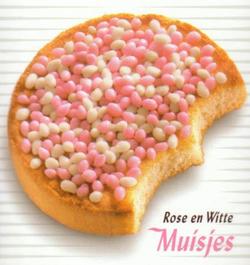Possible world record for newborn in Utrecht
On Saturday, 12 January at 10:53 am residents of the neighbourhood Tuinwijk in Utrecht celebrated the birth of Helena Dijkhuizen, the 300,000 resident of the city. The city wanted to make a big deal and threw her parents the biggest maternity party (‘kraamfeest’ in Dutch) ever. Everyone was invited and the neighbourhood offered the traditional coffee and beschuit (Dutch-type rusk) with special red and white sprinkles (‘muisjes’). ‘Beschuit met muisjes’ is what people traditionally eat when a child is born. They have blue sprinkles for boys and pink for girls, so the red was to make a point, I imagine. When a Royal child is born, they serve orange and white sprinkles, orange representing Dutch royalty.
The city wants to get its party in the Guinness Book of World Records and so we don’t know at this time if that is the case.
(Link: blikopnieuws.nl, Photo: helmaschreuders.web-log.nl)


The Utrecht coat of arms is red and white, see http://www.ngw.nl/u/utrecht.htm
It commemorates the city’s saint Maarten, who cut his red cloak in half to save a pauper from freezing. I suppose that is the reason for the red and white sprinkles.
Aaaah thanks!
“‘Beschuit met muisjes’ is what people traditionally eat when a child is born.”
Sadly, I can’t think of any tradition here in the US that resembles this tradition in the Netherlands. When I lived in Germany as an American child living abroad, my mother did buy the candy sprinkles (muisjes) for our buttered bread in the morning and of course we were delighted. When I returned as an adult on a travel vacation, the pension owner in Zaandvort told me and my travel companion it was for the children. We requested it just the same and enjoyed it judiciously.
The word ‘kraamfeest’ is intriguing. Is it he same as baby shower? What is the word ‘kraam’?
kraam = maternity
Baby shower is usually before the baby comes and traditionally in Canada and the US anyways, only women. You should know that :)
‘Kraambezoek’ is ‘come and see the baby’. You get invited and the invitation tells you from what time to what time you are welcome and when you are not, as mother and child are sleeping.
Since many Dutch women still have children at home (contrary to the rest of Europe), they get nurse-like help for like a day or so, called ‘kraamzorg’ (maternity help).